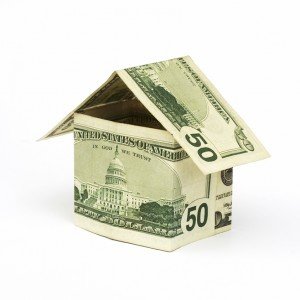 The Prince William Board of County Supervisors learned last week that their starting point of a 2.5 percent increase over this year’s tax bill would yield less income than they expected. At their Jan. 14 Board meeting, they sat through a presentation on the preliminary revenue projections, and learned how this would affect the Fiscal Year (FY) 2015 budget.
The Prince William Board of County Supervisors learned last week that their starting point of a 2.5 percent increase over this year’s tax bill would yield less income than they expected. At their Jan. 14 Board meeting, they sat through a presentation on the preliminary revenue projections, and learned how this would affect the Fiscal Year (FY) 2015 budget.
Supervisors expected property assessments to rise 3.5 percent over the course of 2013. Based upon that projection, they instructed their staff to apply an average tax bill at a 2.5 percent increase over FY14 for the purpose of reviewing the budget. Supervisors had expected this would yield more revenue than last year.
However, assessments came in much higher than expected at a 7.5 percent increase. That means that raising taxes only 2.5 percent over last year's average bill sets the rates low at $1.126 per $100 of assessed value, rather than last year's $1.181 for every $100 of assessed value.
Unless adjustments are made, this formula would leave the county's side short $6.4 million and the school’s side short $8.7 million in each year of the 5-year plan.
However, it is not only the difference in projected and actual residential assessments that may cost the county lost revenue. There is also a discrepancy in the projected and actual commercial assessment values. Despite spikes in residential assessments, commercial tax assessments grew more slowly than expected. That market experienced a 3 percent growth from 2012 to 2013, when 4 percent growth was forecasted. Though Deputy County Executive Chris Martino said this is better than surrounding jurisdictions, it is still not good, especially for tax revenue.
The Commonwealth of Virginia specifies that residential and commercial taxes cannot be bifurcated, meaning that one tax rate will need to apply to both. This is problematic for Virginia jurisdictions since the two are, at least this year, responding very differently to the local economy and growing two very different rates.
Working off a tax bill, rather than a tax rate, [as the county has done in recent years] favors keeping taxes low. However, it leaves the county with less revenue to work with, since the 2.5 percent adjusts the tax rate all the way down to $1.126 from last year’s $1.181.
Deputy County Executive Chris Martino said to negate the shortfall, the county could instead set the tax rate at $1.157 per $100 of assessed value. However, that would be a 5.5 percent increase over last year’s tax bill which, though lower than the 7.5 assessment growth for residential, would likely come as an unwelcome shock to homeowners. Moreover, setting that rate would most definitely be a burden on county businesses, since the tax rate would rise beyond their assessed growth.
County Supervisors, especially Marty Nohe (R) of the Coles District, pointed out that the increased home value assessments are very positive for residents; they should not look at it as all “doom and gloom,” even if it makes their job more “challenging” in setting a budget.
“This is a good thing. Our community got hit harder than any in the region when the housing boom collapsed, and we are recovering faster than we expected,” Nohe said.
Gainesville Supervisor Pete Candland (R) said in light of this news, the supervisors should reevaluate some of its spending habits, noting the supervisors spent $15 million in the past few weeks that was not on the budget but consisted of carryover funds. He noted that the amount spent could have made up for the projected shortfall.
Some of that $15 million was spent on new sports fields and burying power lines along Route 1 to match revitalization efforts.
Other revenue drivers for the county, sales tax and personal property taxes, are also coming in lower than expected. Sales tax means that purchasing is down, which is bad news. However, Martino said that people are actually buying more new cars, which is good news for the economy, if not for the value of used cars.
Meanwhile, this comes at a time when the Board hoped to help their counterparts on the School Board begin lowering tax sizes by hiring new teachers. Chairman Milt Johns has already told his Board to expect it to be a tight year.
Supervisors said they wished they had been told earlier, but Martino said economic factors, such as the government shut down, occurring in the last quarter of the year, came as a game changer for the local economy.
Support Bristow Beat - Donate Today!